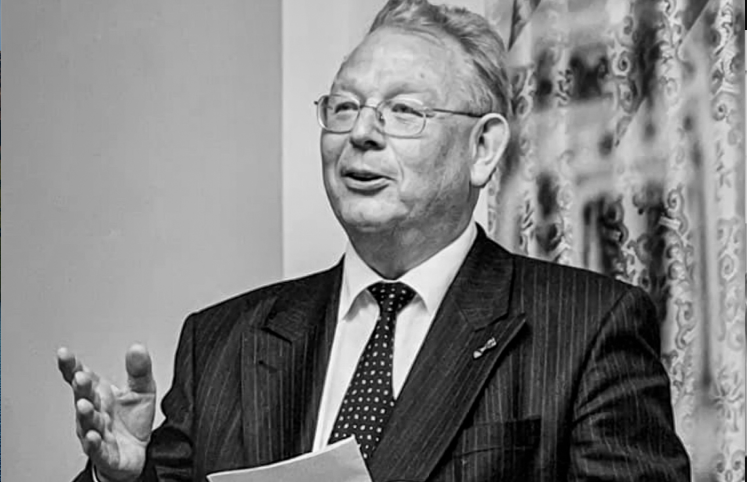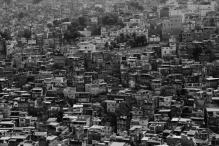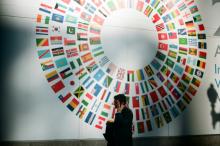It is with great sadness that the United Nations University (UNU) has learned of the passing of former UNU Rector Johannes Auguste (Hans) van Ginkel. Born in Banda Aceh, Sumatra, on 22 June 1940. Professor van Ginkel passed away on 27 July 2023 at the age of 83. He was a citizen of the Netherlands.
Hans van Ginkel served on the governing Council of UNU from 1992 to 1997. He was appointed Rector of United Nations University in 1997 and served in that role until 2007. Under his leadership, UNU significantly expanded its global outreach through the addition of several new institutes, including UNU-CRIS (Comparative Regional Integration Studies) in Bruges, Belgium; UNU-EHS (Environment and Human Security) in Bonn, Germany; and UNU-IIGH (International Institute for Global Health) in Kuala Lumpur, Malaysia; and global initiatives in higher education, such as the Education for Sustainable Development project. He also formalized the integration of UNU-INTECH and the Maastricht Economic Research Institute on Innovation and Technology (MERIT) of Maastricht University to form UNU-MERIT (Maastricht Economic and Social Research Institute on Innovation and Technology), UNU’s second largest institute. Throughout his tenure at UNU, he maintained excellent relations with the UNU Council, Directors, and staff and was known for his sensitivity and consideration of others.
Professor van Ginkel also strengthened UNU’s contacts with the then United Nations Secretary-General, Kofi Annan, which brought UNU closer into discussions and relations with the UN headquarters in New York and the broader UN system.
In November 2007, Professor van Ginkel received the Japanese government’s highest award for non-Japanese nationals, the Order of the Rising Sun, for his “contribution to enhancing the international status of Japan”.
Professor van Ginkel held an MSc degree (cum laude; 1968) in human and physical geography, anthropology and history and a PhD degree (cum laude; 1979) in social sciences from Utrecht University.
Professor van Ginkel started his career as a teacher of geography and history at the Thomas à Kempis College, Arnhem (1965 to 1968) and then joined Utrecht University in the Faculty of Geographical Sciences (1968 to 1985). He was appointed full professor in human geography and planning (1980), served as Dean of Faculty (1981 to 1985), and became a member of the Executive Board of the University (1985). In 1986, he was appointed Rector Magnificus of Utrecht University, and during his tenure in the role emphasized the importance of knowledge networks and advocated for strategic alliances between universities in the era of globalization.
From 1988 to 1998 he was Chair of the National Science and Technology Week, a foundation focusing on sharing information to the public, in particular the young, on recent developments in science and technology. Professor van Ginkel served as the President of the International Association of Universities (IAU) from 2000-2004. He also made significant contributions to the promotion of Education for Sustainable Development in the lead up to the Sustainable Development Goals, which included, among others, a global network of Regional Centres of Expertise on Education for Sustainable Development (RCEs) — an initiative that continues today and comprises 188 RCEs that translate global objectives for sustainability into the context of local communities.
In 1992, Professor van Ginkel was appointed to the Social Sciences Council of the Royal Netherlands Academy of Arts and Sciences (KNAW). In 1994, he received a Knighthood in the Order of the Netherlands' Lion from Queen Beatrix. For his achievements, he received honorary doctorates from universities in Canada, Ghana, Romania, Slovakia and the USA. In 2001, he was appointed a member of Academia Europaea.
Throughout his career, Professor van Ginkel remained a champion of interdisciplinary education, recognizing the power of geography to connect the natural and social sciences, and an advocate of “open geography”, an integrative concept of dealing with contemporary issues through interdisciplinary education. He was an active author in his fields of interest, with a number of notable books, peer-reviewed articles, and other publications to his credit.
He is survived by his wife, Bep (nee Teepen), his son Auke, and his daughter Mapje and two grandchildren.
A condolences book will be available to sign at the reception desk at United Nations University on weekdays from 1 August to 30 August from 10am to 5pm. If you are not located in Tokyo, we will collect condolences via email at unu.ro@unu.edu




